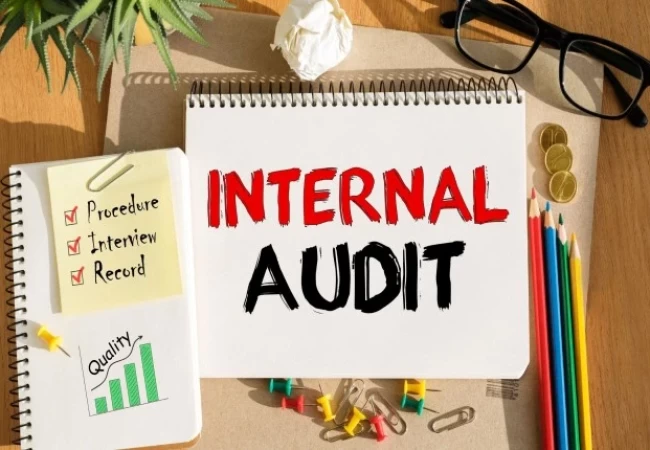To conduct a comprehensive internal audit in a UAE-based business, well-defined checklists serve as the navigational guide for auditors in Dubai. These checklists meticulously outline the key areas to assess and the procedures to follow. In this blog, we will delve into the essential checklists for internal audits in UAE business.
Financial Controls
The reliability of financial statements and the safeguarding of assets heavily rely on robust financial controls. The internal audit checklist must encompass a thorough assessment of financial controls, including:
- Reviewing Accounting and Financial Reporting Processes: Evaluating the efficiency of accounting and financial reporting processes to ensure accuracy and reliability.
- Segregation of Duties: Assessing the segregation of duties to prevent fraud or errors within the financial system.
- Data Integrity: Verifying the integrity of financial data and the appropriateness of accounting policies.
- Control Environment: Evaluating the implementation of internal controls, such as authorization procedures, expenditure controls, and bank reconciliations.
- Tax Compliance: Examining the company’s compliance with the UAE's tax regulations and reporting obligations.
Regulatory Compliance
Compliance with laws and regulations takes center stage for any business operating in the UAE. The internal audit checklist must encompass a thorough examination of the company’s compliance with local laws, including essential factors such as company registration, licensing, and permits. Additionally, auditing services in Dubai must scrutinize adherence to industry-specific regulations, such as those governing financial services, healthcare, or construction.
Furthermore, the checklist should extend to an evaluation of internal policies and procedures to ensure they harmonize with the UAE's legal framework. This includes reviewing employment contracts, safeguarding intellectual property rights, ensuring data protection, and implementing anti-money laundering policies, among others.
Risk Management
Effective risk management is a cornerstone for a company's operational health. The internal audit checklist should provide a comprehensive evaluation of the company’s risk management framework, including:
- Risk Assessment: Identifying and assessing risks associated with the company’s strategic objectives, operations, and financial performance.
- Mitigation Strategies: Reviewing the adequacy of risk assessment methodologies and risk mitigation strategies.
- Control Evaluation: Evaluating the effectiveness of internal controls designed to manage identified risks.
- Crisis Management: Examining the company’s crisis management and business continuity plans.
Operational Efficiency
Assessing operational efficiency is a cornerstone for identifying areas of improvement, enhancing productivity, and optimizing resource utilization. The internal audit firms in UAE checklist should cover the following aspects:
- Organizational Structure: Reviewing the company’s organizational structure and reporting lines.
- Process Efficiency: Assessing the efficiency of key business processes, such as procurement, production, and sales.
- Resource Utilization: Evaluating the utilization of resources, including human capital, technology, and facilities.
- Performance Analysis: Analyzing performance metrics and benchmarking against industry standards.
- Quality Compliance: Assessing the company’s adherence to quality management systems and certifications, where applicable.
Benefits of Internal Audit Checklists
The utilization of internal audit checklists offers a plethora of advantages for both auditors and the organizations they serve:
- Reference Point
A well-structured checklist serves as a reference point for auditors and organizations, indicating when audits should be conducted.
- Transparent Communication
Checklists facilitate transparent communication between the organization and auditors, providing all relevant information to both parties.
- Objective Evidence
They serve as objective evidence during an internal audit in Dubai, helping verify the audit's performance and outcome.
- Consistency
Checklists ensure a consistent approach to internal audits within the organization.
- Confidence Booster
They serve as evidence of audit performance and can be used to build stakeholders' confidence.
- Auditor Assistance
Checklists offer valuable support to auditors during the audit process.
- Resource Estimation
They serve as a pre-audit plan, helping auditors and organizations estimate the time and resource requirements for the audit.
- Uniformity
Checklists ensure uniformity among all auditors appointed by the organization.
- Performance Evaluation
They help assess the quality and performance potential of the organization.
In conclusion, internal audit in UAE businesses is a vital component of the compliance and efficiency landscape. Utilizing comprehensive checklists for internal audit provides a structured approach to auditing and reaps benefits for auditors and organizations alike. These checklists help maintain legal compliance, financial integrity, and operational efficiency - all crucial elements for business success in the UAE's dynamic environment.
If you are seeking leading accounting firms in the UAE for your internal audit needs, Reyson Badger is here to assist. Our expertise in conducting audits ensures that companies maintain compliance with local regulations, effectively manage risks, and enhance their overall performance.



